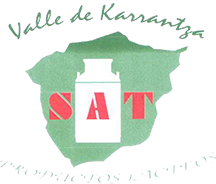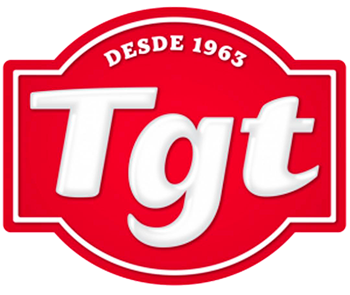ENVIROSCORE
RESPONSIBLE CONSUMPTION AND ENVIRONMENTAL TRACTION IN THE BASQUE AGRI-FOOD CHAIN
The Farm to Fork Strategy, which is part of the European Green Deal, details the need for producers and distributors to offer products with a smaller environmental footprint, as well as the EU's intention to promote environmental communication schemes to consumers. Among the factors that hinder more responsible purchasing, the lack of information on processes and the product stands out above all, which is why the majority of consumers (80%) consider that product labels should include information on product sustainability. Furthermore, consumer choices towards products with lower environmental impacts could encourage the food industry to improve its practices and motivate producers to be part of the solution to the climate crisis. A clear example is the EU energy label (EU 2017/1369): 90% of the refrigerators and washing machines sold have achieved a higher A rating since its introduction up until 2017.
Fostering more sustainable diets while driving the food chain towards more efficient production is in line with the targets of Sustainable Development Goal 12, and ENVIROSCORE, an environmental labelling system based on the Product Environmental Footprint developed by AZTI and KU Leuven, focuses on this. The project, which aims to validate the use of ENVIROSCORE, is led by EROSKI, the leading distribution company in the Basque Country, and has been carried out with the AZTI Technology Centre as a subcontractor, as well as with the collaboration of EUSKABER (poultry cooperative), ARROYABE (canning company), S.A.T. KARRANTZA and GRUPO TGT (milk production and packaging).
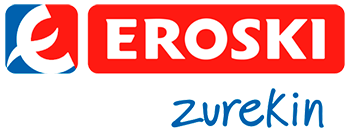
DRIVING FACTOR
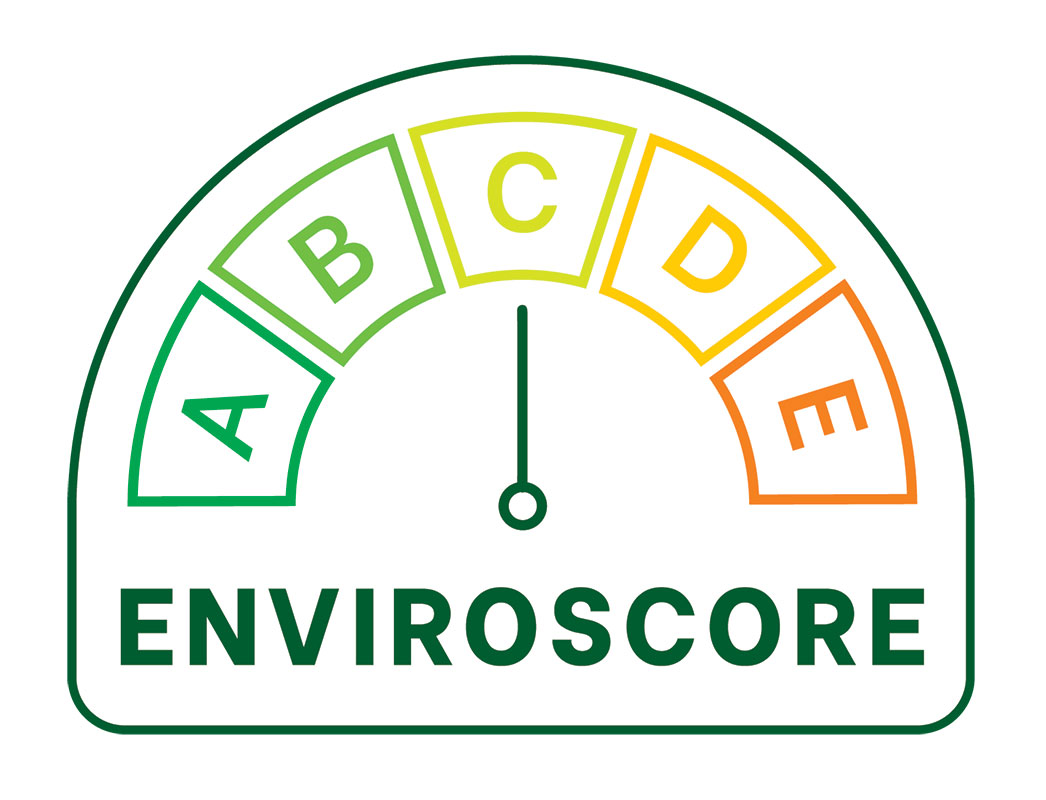
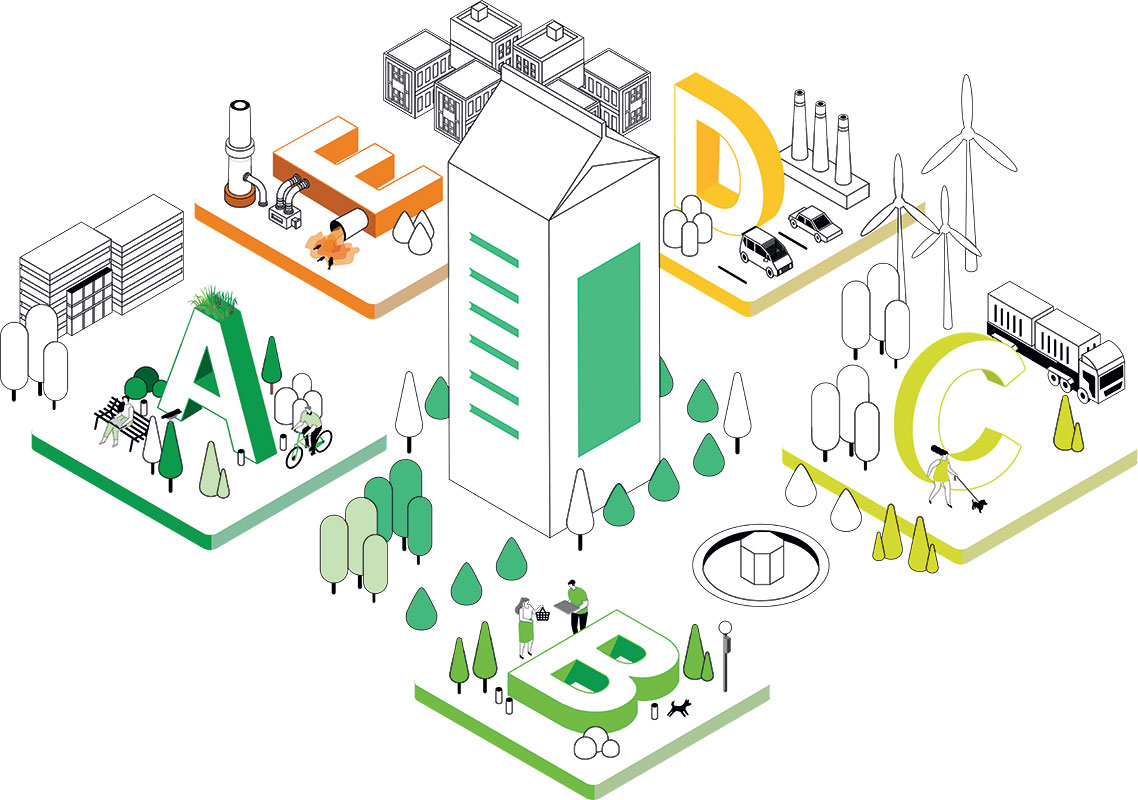
 OBJECTIVES
OBJECTIVES
- Validate the use of the ENVIROSCORE ABCDE environmental impact communication system as a tool to generate a shift in food production and consumption towards more environmentally friendly models.
- Drive the entire value chain of 5 selected products: organic eggs, free-range eggs, canned bonito, canned tuna and full fat milk towards a change of ENVIROSCORE letter.
- Place food production and distribution companies in the Basque Country at the forefront of environmental transparency and eco-design of foodstuffs.
- Foster continuous improvement in production models.
- Reduce the environmental impact generated in the value chain.
 RESULTS
RESULTS
- Proposal for specific actions to reduce environmental impact in egg production (improved feed production for both hens and pullets), tuna canning (reduction of diesel consumption on fishing boats, oil coverage and canning packaging) and dairy products (environmental mitigation measures on raw milk farms).
- Savings of 1,670 tonnes of CO2 equivalent emissions and 15 million m3 of water use equivalent, in a scenario involving a total change in the production of the 5 products.
- Communication and dissemination of the project results in order to maximise its impact on society, including the greatest possible number of consumers, agri-food companies, the scientific community or administrations.
- 67.3% of customers claim that they take action in their daily lives to be more environmentally friendly, with a medium-high level of awareness of the products in their shopping baskets.
- Environmental information on a label brings value to 69.6% of customers and the majority would like to see this type of labelling on all food products. 38.3% would be absolutely willing to pay a little more for environmentally friendly products.
 CONCLUSIONS
CONCLUSIONS
- The application of environmental labelling and its communication fosters an appetite for products with a higher score and drives companies to make changes based on the eco-innovation of their production processes (better use of natural resources, water and energy savings, reduction of food waste, reduction of waste, optimisation of transport, improvement of packaging, etc.), as well as in the design of products, optimising their life cycle and generating cost reductions and competitive improvements.
- Local Basque products and/or products with short marketing chains have a better chance of penetrating the markets than imported products from far-off countries with environmentally unfavourable production standards.
- EROSKI's customers have a high environmental awareness, but call for increased clarity in the co-existence of environmental and nutritional labelling on product packaging.
ENVIRONMENTAL
TECHNICAL
ECONOMIC
COMMERCIAL
ON THE MARKET






